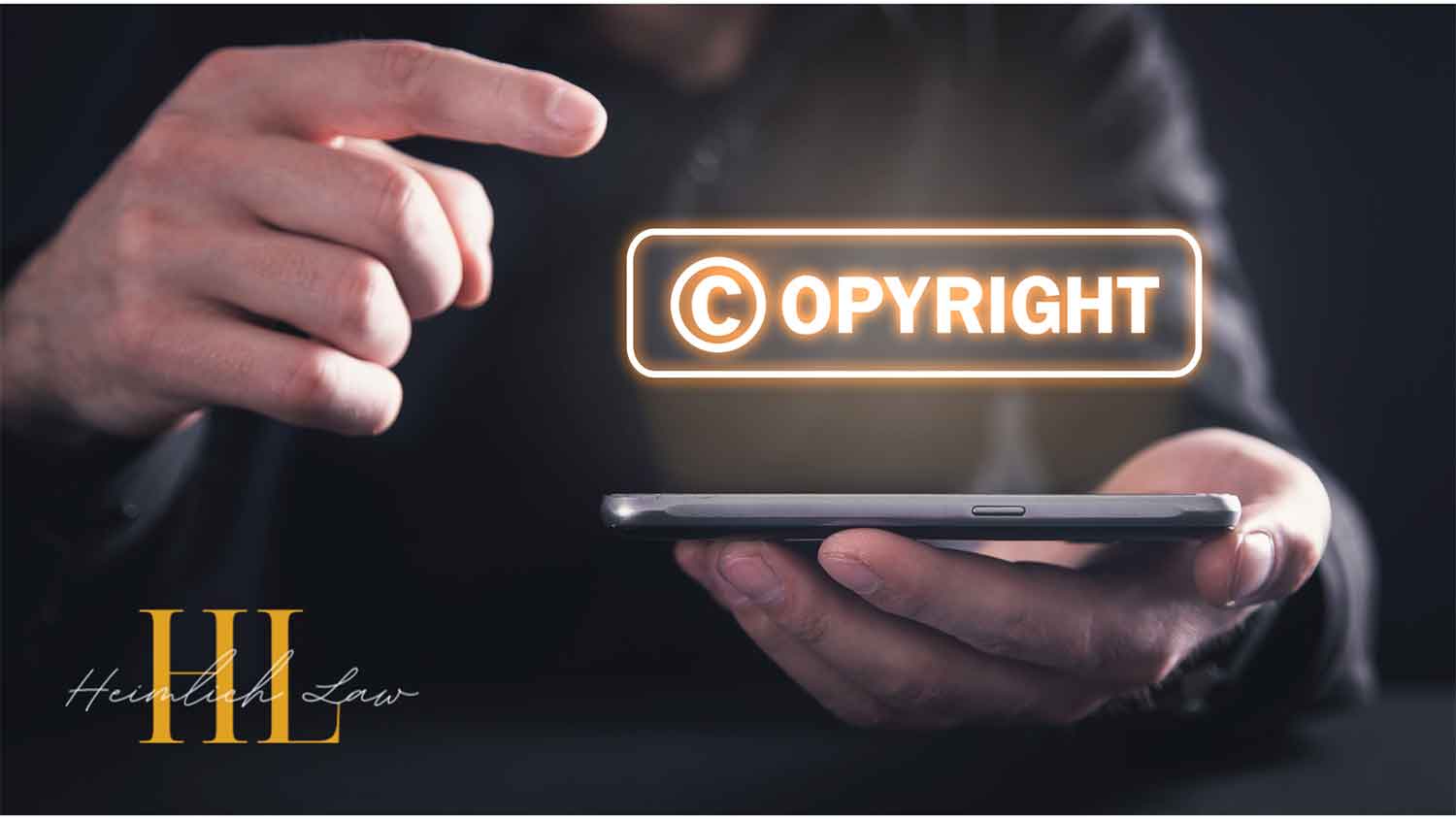Immediately contact an Intellectual Property (IP) attorney. Like at Heimlich Law PC. Facing a patent infringement lawsuit can quickly put your business at risk. From unexpected legal costs to the threat of product bans, the impact is very serious, especially if you don’t have the right legal guidance from the start.
Most intellectual property lawyers will tell you: the worst thing you can do is ignore the warning letter or claim. In this blog, we’ll explain what qualifies as patent infringement, the risks involved, and the steps you should take if you’ve been served.
Can You Sue for Patent Infringement?
Yes, if you hold a valid, enforceable patent, you can take legal action against those who use your invention without your consent. Typically, patent lawyers help you file a federal lawsuit seeking damages, injunctive relief, or both. Patent infringement cases are handled in U.S. federal courts because patents are governed by federal law under Title 35 of the United States Code. That gives federal courts exclusive jurisdiction over these types of disputes.
Before suing, it may be advisable wise to send a cease-and-desist letter. If that doesn’t resolve the issue, working with experienced professionals will help you build a case that stands up in court and covers all necessary technical and legal grounds.
What Qualifies as Patent Infringement?
Patent infringement isn’t always obvious, and in many cases, businesses don’t even realize they’ve crossed a line until they’re served with an infringement notice. Understanding what qualifies as infringement is the first step in building a defense or avoiding a lawsuit entirely.
In general, infringement occurs when a protected invention is used without the patent owner’s consent. There are different types and circumstances that define how and when this happens.
Here are the main forms of patent infringement, with examples of how they may apply in real-life scenarios:
- Direct Infringement
This occurs when someone makes, uses, sells, or imports a patented item without permission. It’s the most straightforward form of infringement. For example, if your company manufactures a product that matches every element of a patented design or process, even unknowingly, you may be liable for direct infringement. - Indirect Infringement
Indirect infringement includes encouraging or assisting someone else in infringing a patent. This could be providing a component or tool specifically designed to be used in a patented invention. Even if you’re not the one using the invention, contributing to another party’s infringement may still put you at legal risk. - Contributory Infringement
A subset of indirect infringement, this happens when a party sells or supplies a part that has no substantial non-infringing use, meaning it’s only useful as part of a patented invention. If your product enables someone else to infringe on a patent, even indirectly, you could be held responsible. - Literal Infringement
This is when the accused product or process matches the patent’s claims exactly, word for word. Even minor similarities can qualify if the patent’s language directly applies. Courts compare the actual elements to the patent claim terms in detail. - Doctrine of Equivalents
Even if the accused item doesn’t match the patent word for word, it may still infringe under this legal doctrine. If the product or process performs substantially the same function, in the same way, to achieve the same result as the patented one, it may be considered infringing, even without literal overlap. - Willful Infringement
If you knew a patent existed and chose to violate it anyway, the court may classify it as willful. This can result in harsher penalties, including triple damages. Companies should always conduct proper patent searches and legal reviews to avoid this risk.
If you’re unsure whether your product or service falls under one or more of these categories, consulting a qualified patent attorney is a critical next step. A legal professional can help you interpret patent claims, assess the risk, and take action before the situation escalates.
What Is the Penalty for Patent Infringement?
Penalties for infringement can be harsh. Depending on the case, courts may order the infringer to stop using the patent and pay damages. In willful infringement cases, damages can be tripled. Legal fees and lost profits may also be recovered.
This is why partnering with the right intellectual property law firm matters. Legal guidance ensures you don’t underestimate the seriousness of the claim or overlook a possible settlement strategy.
How to Calculate Damages for Patent Infringement
When a patent is violated, the law provides a way for the rightful owner to recover financial losses. But calculating damages isn’t just about assigning a number. It involves legal strategy, detailed analysis, and a clear understanding of how the infringement impacted the patent holder’s business.
Courts typically consider the actual loss caused by the violation, as well as what the infringer would have reasonably paid if proper licensing had occurred. In some cases, they may also impose additional penalties if the infringement was intentional.
Here are the primary ways damages are calculated:
- Lost Profits: This method estimates the income the patent owner would have made if the infringement never happened. To prove this, one must show market demand, the ability to meet that demand, and a direct link between the lost sales and the infringing activity. Financial records, past sales data, and market analysis are essential to support this claim.
- Reasonable Royalties: If lost profits can’t be proven, courts may award damages based on a fair licensing fee. This is calculated through a hypothetical negotiation between the patent holder and the infringer—determining what the infringer would have paid for lawful use of the invention. Factors like prior licensing agreements, patent value, and industry standards help shape this figure.
- Punitive or Enhanced Damages: When the court finds that the infringement was willful, it may award up to three times the actual damages as a penalty (treble damages). These are meant to deter deliberate violations and show that intentional infringement carries serious consequences.
An attorney for a patent will gather financial records, market data, and opinions to support damage calculations that hold up in court.
Steps to Take When Facing a Patent Infringement Lawsuit
If you’re accused of patent infringement, don’t wait. Act fast, and take the following steps with the help of a trusted patent lawyer:
Possibly Back Off certain Actions
Immediately stop using, manufacturing, or selling the disputed product if advised by your attorney. It reduces ongoing exposure.
Assess the Impact
Figure out how the claim affects your operations. Could it shut down production? Delay releases? Get your legal team to evaluate worst-case scenarios.
Evaluate Your Opponent
Research the plaintiff’s history. Are they known for settling, or are they aggressive in court? Knowing who you’re up against helps shape your defense.
Reduce Your Exposure
Start documenting everything, emails, prototypes, contracts. Your patent attorneys will need it to prove good faith, prior use, or independent development.
Additionally, if you receive a letter that threatens a lawsuit or an actual lawsuit, implement an immediate “Litigation Hold” meaning preserve all communications and DO NOT destroy anything. Spoliation of evidence is frowned upon by federal courts and can have very serious consequences. Spoliation of evidence refers to the destruction, alteration, or failure to preserve evidence that’s relevant to a legal proceeding, particularly when a party knows (or should know) that litigation is likely. It is governed primarily by Federal Rule of Civil Procedure 37(e) for electronically stored information (ESI). The consequences of spoliation can be Draconian. Talk to your attorney.
Plan a Counterattack
Sometimes the best defense is a good offense. A countersuit or challenging the validity of their patent could work in your favor. Your legal team can help you decide the smartest move.
Work with Heimlich Law PC for Patent Defense & Strategy
Patent lawsuits are complicated and expensive. You need a partner who knows how to win without dragging you through years of legal limbo. At Heimlich Law PC, we combine deep knowledge of patent law with real-world experience defending businesses of all sizes.
As a proven legal partner for innovation-driven companies, we support your intellectual property goals from both legal and strategic standpoints. Our team works with inventors, startups, and corporations to secure and defend patents with precision.
Want to protect your business? Let our patent attorneys help you respond smartly and quickly. Contact Heimlich Law PC today for a consultation and find the support you need to move forward confidently.




